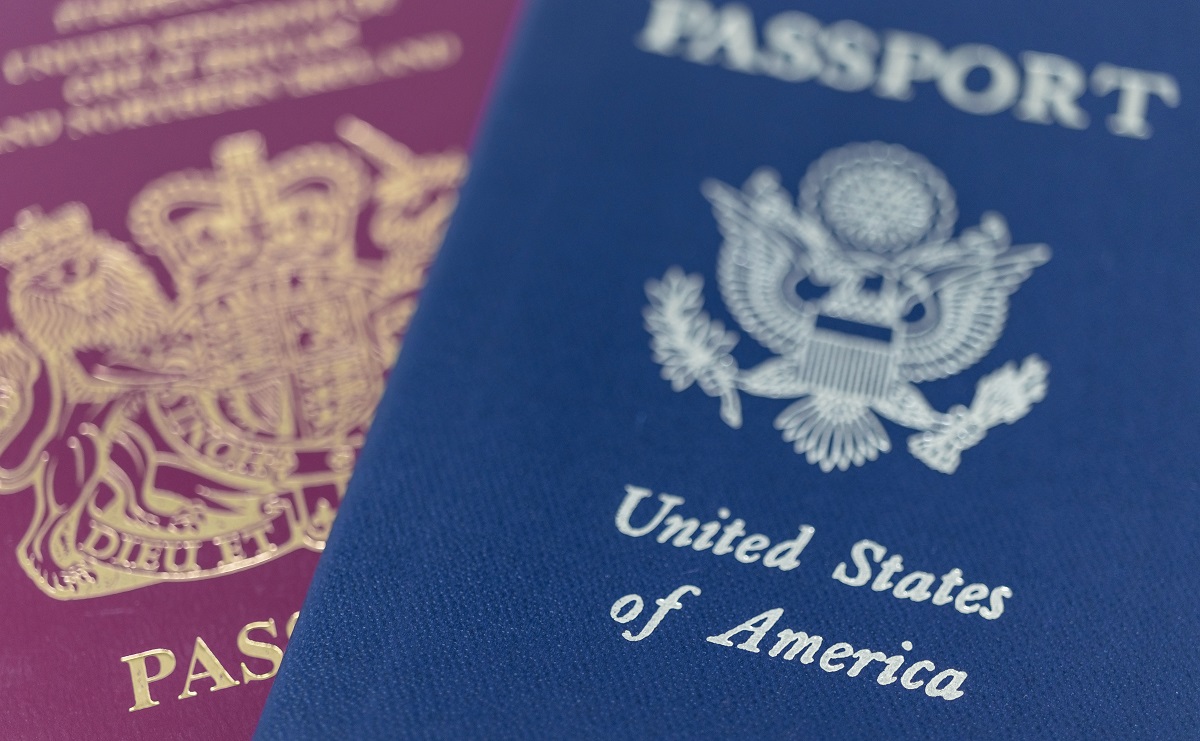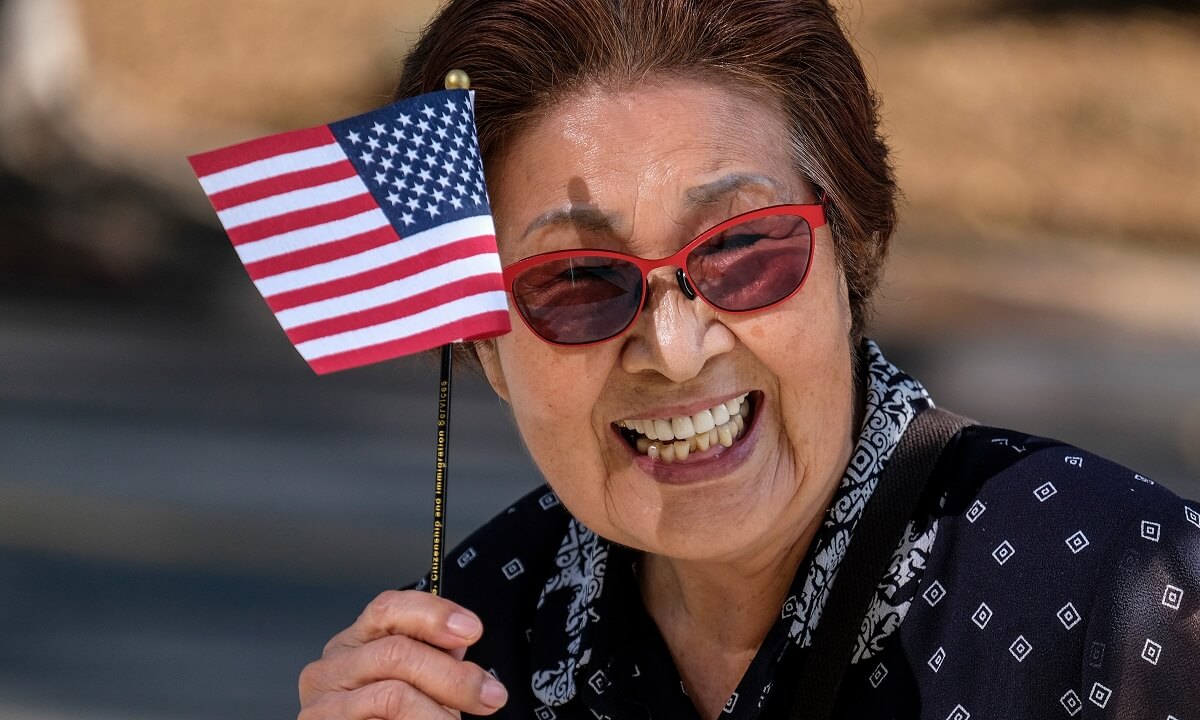
Dual citizenship means that a person is a citizen of two countries, having legal rights and obligations in connection with both countries. Persons may gain dual citizenship automatically in some situations, and others may obtain it through choice. The U.S. government recognizes that dual citizenship exists but does not encourage it as a matter of policy. That’s because there may be some obvious advantages to holding dual citizenship, but there are also other factors that can make life more complicated.
Generally, dual citizenship and dual nationality are the same thing. For the purposes of this discussion, we will use the two terms interchangeably. In reality, there are minor differences.
Confusion about Dual Citizenship
So why, if Americans can have dual citizenship, does this seem to be a question people still have? Why are people confused about whether U.S. citizens can be citizens in two or more countries?
Part of the reason is that there is no mention of dual citizenship in the U.S. Constitution.
The 14th Amendment in the United States Constitution says, “All persons born or naturalized in the United States, and subject to the jurisdiction thereof, are citizens of the United States and of the state wherein they reside.”
This is the only part of the Constitution that talks about citizenship. Dual citizenship is not regulated in the Constitution of the United States, but Americans are more interested than ever in getting a second passport.
When the Constitution doesn’t address something, it’s left to Congress to make laws. If there are no laws, we check what the Supreme Court has said about it. The Supreme Court has ruled more than once that Americans can be dual citizens.
There are two important Supreme Court decisions on dual citizenship:
- In Afroyim v. Rusk, the Supreme Court decided that only an American citizen can let go of its own citizenship. The government cannot cancel anyone’s citizenship - doing so violates the 5th Amendment and contradicts what the 14th amendment says about who is considered a United States citizen: “all persons born or naturalized”.
- In Vance v. Terrazas, the Court decided that having another citizenship while you are a U.S. citizen doesn’t imply you’re giving up your U.S. citizenship.
Therefore, you’re American first, even if it’s your second citizenship. Other countries may demand that you give up your American citizenship, but the U.S. has no say in that.
How People Become Dual Nationals
It’s possible to acquire dual citizenship without even knowing it. In fact, you may knowingly or unknowingly be a national of another country, even if you do not accept the nationality or hold a passport of that country. You may acquire dual citizenship in the U.S. in one of several ways, including:
- Being born in the United States, and subject to the jurisdiction thereof, to one or two parents holding a nationality other than the United States, with your second nationality based on the other country’s nationality law;
- Being born outside the United States to one or two U.S. citizen parents, with your second nationality based on the foreign country’s laws; or
- Naturalizing as a U.S. citizen while maintaining the nationality of another country.
Benefits of Dual Citizenship
The benefits of dual nationality include broadened privileges and more conveniences. Here are just three reasons why people may desire to be citizens of more than one country:
Greater Freedom of Movement
Having U.S. citizenship opens a lot of doors. The United States passport is one of the most powerful in the world. It allows visa-free or visa on arrival entrance to more than 185 countries. Remember that U.S. citizens must leave and enter the country with their U.S. passport. You can learn more about applying for a U.S. passport on the Department of State’s website.
Expanded Benefits
Being a dual citizen generally gives you the right to live and work in both countries. You can also tap into both countries' social services and apply for assistance if you need it. You also have more educational opportunities. As a dual citizen, you are also able to own property in both countries.
A Voice in Two Places
As a dual citizen, you also have the right to vote in both places. In the United States, you also have the responsibility to report for jury duty. You can influence issues that are important to you and may shape public opinion for years to come. Your vote matters on issues ranging from immigration to healthcare to the presidency.
The U.S. Government Doesn't Force You to Choose
U.S. law does not obstruct its citizens' acquisition of foreign citizenship whether by birth, descent, naturalization or other form of acquisition, by imposing requirements of permission from U.S. courts or any governmental agency. If a foreign country's law permits parents to apply for citizenship on behalf of minor children, nothing in U.S. law impedes U.S. citizen parents from doing so.
Likewise, U.S. law does not require a U.S. citizen to choose between U.S. citizenship and another nationality. A U.S. citizen may naturalize in a foreign state without any risk to their U.S. citizenship. In order to lose U.S. citizenship, the law requires that the person must apply for the foreign citizenship voluntarily, by free choice, and with the intention to give up U.S. citizenship.
U.S. dual citizens owe allegiance to both the United States and the foreign country (or countries, if they are nationals of more than one). They are required to obey the laws of both countries, and either country has the right to enforce its laws. Claims of other countries upon U.S. dual-nationals may result in conflicting obligations under the laws of each country. U.S. dual nationals may also face restrictions in the U.S. consular protections available to U.S. nationals abroad, particularly in the country of their other nationality.
Complications with Dual Citizenship
Having citizenship in two or more countries does have advantages, but there are some tradeoffs to consider. Countries have different laws and policies for persons with dual nationalities. In fact, some countries may not permit dual citizenship. Examples of a nation’s laws or policies that may affect a dual citizen include the following:
- Entry and Exit Requirements: When traveling to a country where you have citizenship (while also holding U.S. citizenship), you may be required to enter and depart on a passport from that country. Some countries impose specific restrictions on departing nationals, such as the requirement for an exit visa.
- Exit Bans: Countries may impose exit bans on U.S. and dual nationals for a variety of reasons, such as an alternative to criminal detention or in cases of civil or familial disputes. Some governments may even use exit bans coercively on individuals who are not facing criminal charges themselves, but rather to compel an associate or relative under investigation to return from abroad. Due to the uncertain lengths of these restrictions, exit bans or the prolonged processing of civil documents often create a significant financial burden, including unemployment, unexpected living expenses, and fines.
- Limited U.S. Assistance Abroad: Local authorities may not recognize your U.S. nationality if you are also a national of that country, especially if you did not enter the country using your U.S. passport. The U.S. embassy or consulate’s ability to provide consular assistance may be limited.
- Notification and Access to Detained Dual Nationals: Many countries do not recognize dual nationality under their laws, even if they do not expressly prohibit dual nationality. U.S. consular officials may not be permitted to access U.S. nationals in detention if they are also nationals of the country where they are detained. Dual citizens who are arrested or detained should request that police or prison officials notify the closest U.S. embassy or consulate.
- Military Service: Dual nationals may be subject to mandatory military service in a foreign country. This obligation may be imposed immediately upon arrival or when attempting to depart the country.
- Registration: In some countries, you may be required to register your other nationalities.
- Prohibition of Dual Nationality: Some countries have laws that prohibit dual nationality, and you may be forced to give up a foreign nationality. You could be compelled to do so through a formal act of renunciation.
Due Diligence Before Applying for U.S. Citizenship
Before applying for dual citizenship, consider these factors. It's worth spending some time researching the dual citizenship laws of the countries in which you currently have dual citizenship, or where you are interested in naturalizing. Laws are different in every country. You may need to check with the embassy of that secondary country. When in doubt, seek the assistance of an immigration attorney who is familiar with that country's laws. Also, access your own comfortable level with the these three possible scenarios for dual citizenship:
- Not Lawful: In a worst case scenario, your country does not allow dual citizenship. If you want to become a citizen of the U.S., you lose your citizenship. For example, nationals of China, India, and Singapore generally lose citizenship when naturalizing as a U.S. citizen.
- Flexible: In some cases, there is a way to mend forfeited citizenship. Some countries have a process to reclaim or retain your citizenship. The Philippines is a notable example.
- Best case scenario: Ideally, your country allows dual citizenship. When you become a U.S. citizen, you will be a citizen of both countries. You can check countries that allow dual citizenship. But remember, the best place to confirm this is your country’s embassy or consulate.
Applying for Citizenship in the U.S.
Non-citizens may apply for naturalization once they meet the citizenship requirements. In most cases, individuals are eligible after five years as a permanent resident. Use Form N-400, Application for Naturalization, to apply. There are no special forms or instructions for applicants that already have citizenship in another country.
Ready to start? CitizenPath's service was designed by immigration attorneys to give you an affordable, reliable way to prepare the application. You'll have the ability to prepare Form N-400 from the comfort of your own home knowing that you did everything right. To learn more about pricing and the 100% money-back guarantee, view our Naturalization Package.
About CitizenPath
CitizenPath provides simple, affordable, step-by-step guidance through USCIS immigration applications. Individuals, attorneys and non-profits use the service on desktop or mobile device to prepare immigration forms accurately, avoiding costly delays. CitizenPath allows users to try the service for free and provides a 100% money-back guarantee that USCIS will approve the application or petition. We provide support for the Naturalization Package (Form N-400),Adjustment of Status Package (Form I-485), and several other USCIS immigration forms.
Want more immigration tips and how-to information for your family?
Sign up for CitizenPath’s FREE immigration newsletter and
SAVE 10%
on our immigration services






